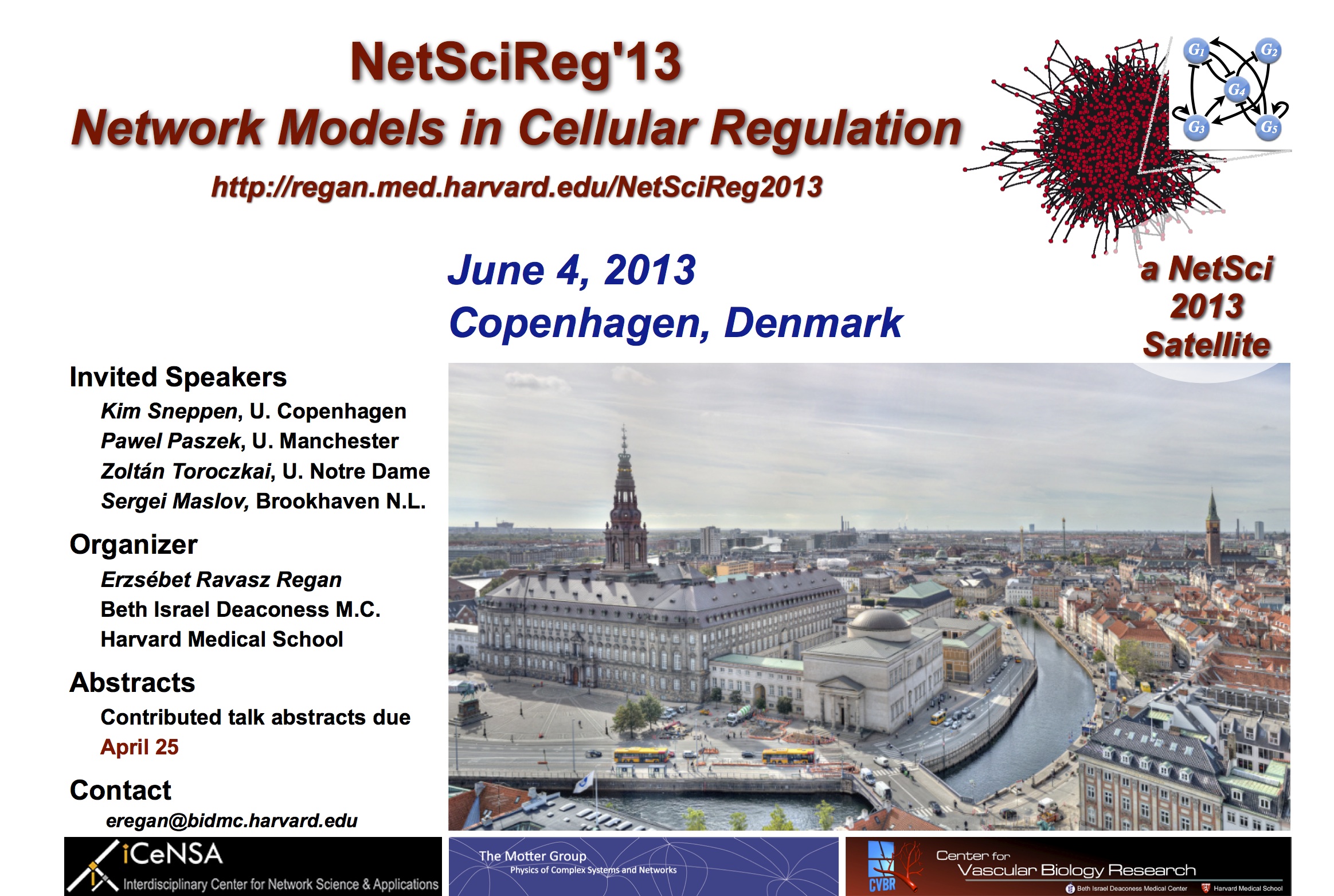NetSciReg'13 - Network Models in Cellular Regulation
June 4, 2013 - Copenhagen
| Synopsis |
| Program |
| NetSciReg'13 Flyer |
| Important Dates |
| Registration |
| Call for Contributed Talks |
| Logistics |
| NetSci 2013 |
| Sponsors |
|
Time: 2:00 - 2:50 AM
Type: Invited presentation
Affiliation: Interdisciplinary Center for Network Science & Applications, University of Notre Dame, USA
Co-authors: Sameet Sreenivasan (Rensselaer Poly. Inst.) and Hyunju Kim (Virginia Tech)
Abstract Biological networks are known to possess functionally specialized modules, which perform tasks almost independently of one another. While proposals have been made for the evolutionary emergence of modularity, it is far from clear that adaptation on evolutionary timescales is the sole mechanism leading to functional specialization. We show that non-evolutionary learning can also lead to the formation of functionally specialized modules in a system exposed to multiple environmental constraints. A natural example suggesting that this is possible is the cerebral cortex, where there are clearly delineated functional areas in spite of the largely uniform anatomical construction of the cortical tissue. However, as numerous experiments show, when damaged, regions specialized for a certain function can be retrained to perform functions normally attributed to other regions. We use the paradigm of neural networks to represent a multitasking system, and use several non-evolutionary learning algorithms as mechanisms for phenotypic adaptation. We show that for a network learning to perform multiple tasks, the degree of independence between the tasks dictates the degree of functional specialization emerging in the network. To uncover the functional modules, we introduce a method of node knockouts that explicitly rates the contribution of each node to different tasks (differential robustness). Through a concrete example we also demonstrate the potential inability of purely topology-based clustering methods to detect functional modules. The robustness of these results suggests that similar mechanisms might be responsible for the emergence of functional specialization in other multitasking networks, as well, including social networks. |
SPONSORS: |



